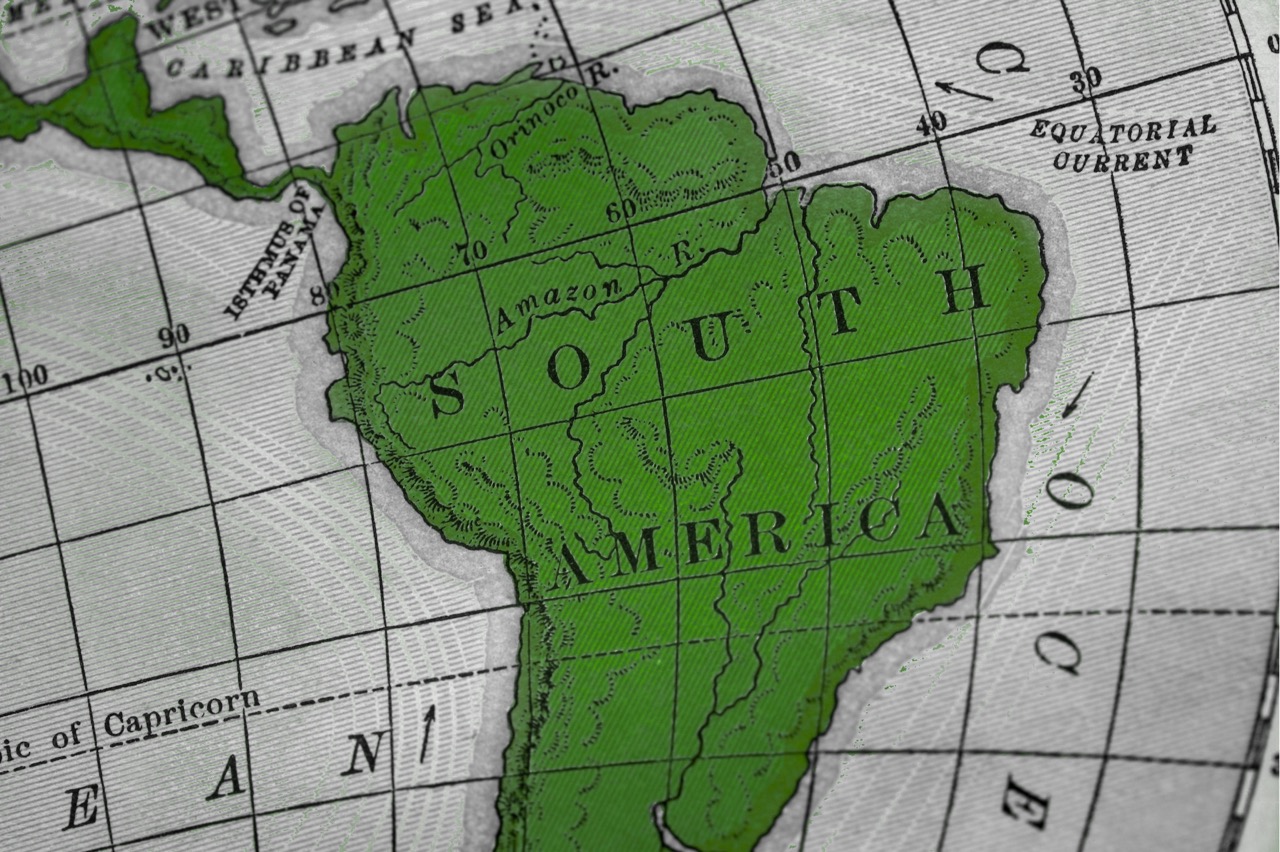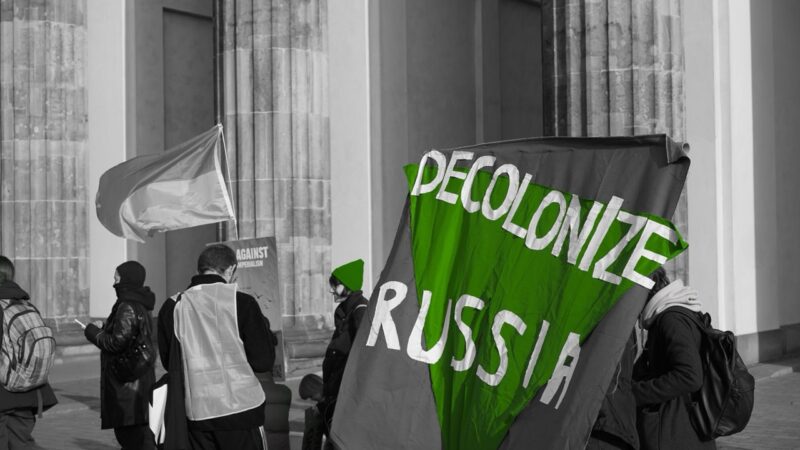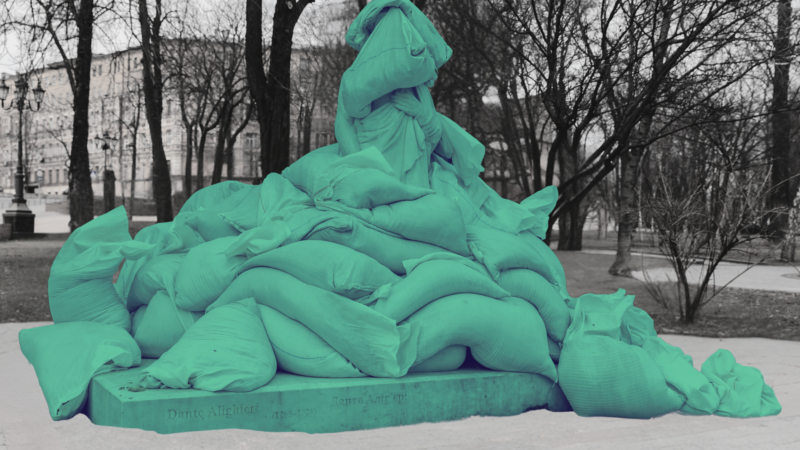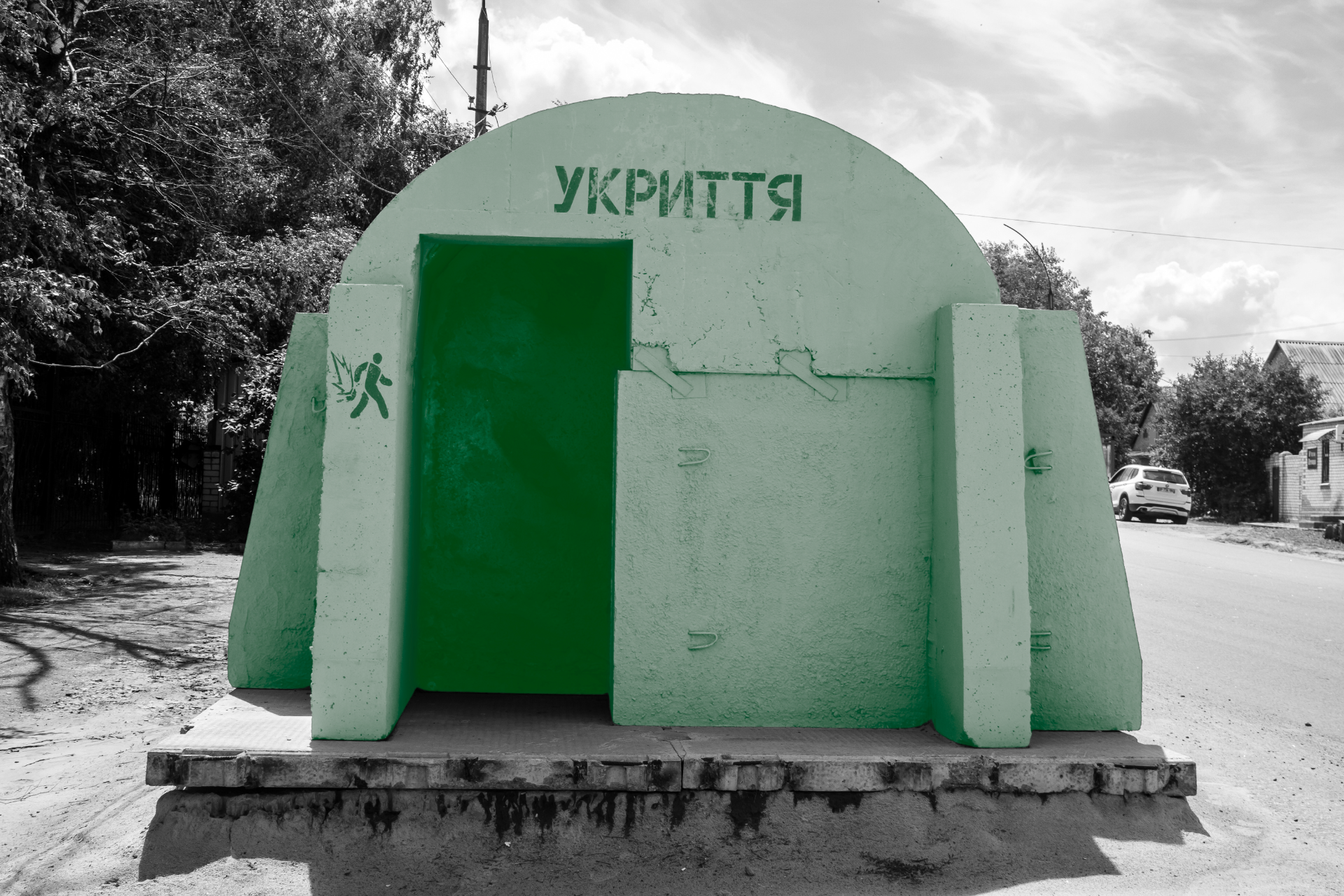Interview with Lila Roldan Vazquez | Ambassador of Argentina to Ukraine, 2007–15 | No other way to fight disinformation than with the truth

Oleksandr Pankieiev: You were the Argentinian Ambassador to Ukraine from 2007 to 2015. These critical years saw two revolutions in Ukraine. What did you learn about Ukraine in your position during that period that you would like the other people to understand?
Lila Roldan Vazquez: Ukraine is, first and foremost, a country composed of independent people. They have an independent mind and character that is not so common to find, because people usually allow themselves to be guided by their political leaders or general opinion. I found that in Ukraine, people are very well-educated, principled, and opinionated. That is, they cannot be taken by the nose and led wherever. They are a cultivated people. I saw more people reading books on the subway or in the parks than in any other country. Ukrainians are really interested in culture.
For instance, while taking my son to piano and violin lessons in Kyiv, we discovered that practically every child attends music lessons after regular school classes. Every child has a foundation in music from a very young age. I remember taking my son to the opera shortly after we arrived in Ukraine. I was afraid he would be the only child in the theatre, but I was surprised to see how many children were present, so very interested in the music.
Of course, there are nuances as well. Ukrainians from large urban centres like Kyiv, Lviv, or Odesa will be different from Ukrainians in the countryside, like farmers and people from the interior. But I found the youth very interesting and ambitious, in the best sense of the word. They strive to live a good life and be useful to their country. Especially after 2014 and the Maidan, there was a renaissance of national feelings in the Ukrainian youth. Before 2014, for instance, when I visited Ukrainian universities the students would say that they wanted to study in Europe, and they also gladly accepted our offers to attend university in Argentina. After 2014, I remember offering them the opportunity to come to Argentina through our Study in Argentina program. One of the students got up and asked, “Why do you want me to leave my country? I want to go on studying here and live in Ukraine.” That was a very powerful thing for a young person to say.
I admire the Ukrainian people very much. Ukrainian women are absolutely incredible. They are strong and take good care of their families. This is an important value for women everywhere, but it is especially strong in Ukraine.
Pankieiev: It is often pointed out that Russia exerts a substantial influence on Latin American domestic politics and international relations. To what extent has Russia’s influence changed in Latin America since the start of the full-scale invasion of Ukraine?
Vazquez: First, I do not think that Russia has a hold on Latin America. I do not believe its influence is so significant. I will speak about Argentina first and then about the broader region. Our relationship with Russia is basically similar to that with other countries. We do not have a history of antagonism with other nations. I would say Argentina has a middle-intensity relationship with Russia. It is not particularly intense nor especially relevant to our government. Argentinians may know about Russian ballet and literature, and there was a moment of romanticism around communism a few years back.
Decades ago, the Soviet Union made an effort to invite our students to study in Moscow or Saint Petersburg. Those who studied there developed friendships with Russians or maybe even married a Russian girl. They ended up having a different vision of Russia because they were immersed in its culture and the idea of communism as a fantastic way of living, all those things that we know were Soviet propaganda. This perspective has a lingering effect, perhaps on teachers in universities or older people, but not among very young people, because they were not affected by this. There was also the notion that Russia and Ukraine were the same—not only Ukraine but every country in the Soviet Union. Here, I am speaking not only about Argentinians but also about the region in general. The people of all fifteen republics were considered Russian because in the Soviet Union, Russia was the most visible country, and Moscow was the center. Few people knew about the differences between Ukraine and Georgia or Armenia. These are some of the reasons why people were not very aware of the realities of the relations between Russia and the other republics, their historical differences, and so on.
Pankieiev: Do you see the situation of certain countries in Latin America supporting Russia as a byproduct of disinformation and misinformation about Ukraine and Russia, and if it is an informational problem, how can we change it?
Vazquez: It is not only a problem of information in some cases. If we talk about the region as a whole, there are exceptions to the rule because there are Cuba, Nicaragua, and Venezuela, which have very close ties to Russia. In the case of Cuba, this relationship goes back to the former Soviet Union. Maduro’s government in Venezuela is a strong ally of Putin’s regime, and Nicaragua also supported Russia’s invasion. In this sense, they have differentiated themselves from all the other countries in the region.
Even if the other countries’ support for Ukraine is less vocal or visible, they have all condemned the full-scale invasion. This includes even those countries which maintain good relations with Russia, such as Brazil. Brazil and Russia are members of BRICS and, as a result, have interests that exceed even their bilateral relationship. Nonetheless, Brazil voted against the invasion and condemned Russia’s actions before international and regional organizations. Mexico, which was also a non-permanent member of the UN Security Council, likewise condemned the invasion.
Of course, since the invasion, Russia has been more present in the region through the sale of weapons and the establishment of bases in Venezuela and Nicaragua. They have also signed contracts via Rosneft to provide gas to Bolivia, which has a leftist government. However, I do not see Russia advancing much in the region overall.
Under the previous Peronist government, Argentina condemned the invasion and in that same year, 2022, Russia was expelled from the United Nations Human Rights Council, over which Argentina was presiding at the time. We also supported a resolution in the Organization of American States condemning the invasion, although we were less active in supporting Ukraine than at the present time.
Since December 2023, there has been a meaningful change in policy under the new government. President Zelenskyi was invited to President Milei’s inauguration in December 2023. On that occasion, they maintained a substantial bilateral meeting and President Zelenskyi had the opportunity to arrange bilateral meetings with various regional leaders, which was of great interest to him. In June, President Milei participated in the peace summit in Switzerland. Argentina then joined the Ramstein Group (aka Ukraine Defense Contact Group), the Crimea Platform and the initiative to bring Ukrainian children taken by Russia back to Ukraine. So, currently, Argentina is actively supporting Ukraine.
I believe Chile shares our position. President Boric also attended the peace summit in June and is vocal in supporting Ukraine and condemning the invasion. Also, there have been several changes of government in various countries in the region. Colombia’s position has changed because a government with a different ideological position has been elected. Colombia’s previous government supported Ukraine, but this support is less visible under the current government.
Mexico has a particular view of the situation; they have not been against Ukraine nor openly supportive of Ukraine.
Brazil’s former President Bolsonaro, as you know, visited President Putin just before the full-scale invasion, as did our former president, Fernández. Soon after the invasion, Brazil had elections, and Lula became president. To my surprise, he has not been as vocal in his support for Ukraine as he should be. Perhaps this is because Brazil is partners with Russia in BRICS or because they are a large military client of Russia’s. President Lula offered to mediate the conflict but without strongly condemning Russia. As a result, President Zelenskyi refused this proposal. Brazil then made a joint proposal with China, which was also rejected because it was not neutral enough in President Zelenskyi’s opinion. As for sanctions, traditionally Latin American countries do not apply individual sanctions. They only apply sanctions adopted at the United Nations or by the OAS at the regional level.
Pankieiev: It is great that Argentina is currently one of the biggest supporters of Ukraine in Latin America. What role can Argentina play in influencing other countries to support Ukraine more?
Vazquez: President Milei intended to host a peace summit in Latin America. He and President Zelenskyi discussed this possibility when he was in Buenos Aires last December. Unfortunately, not every country in the region was on board. According to my colleagues in the Ministry of Foreign Affairs, the problem was that the summit was intended to be as broad as possible, involving countries from across the region, otherwise it would appear like a sign of weakness. The goal was not to have only three or four countries attend the peace summit. The objective was to get everybody on board and to have a real regional representation, but they did not find enough partners for the summit. I assume that they talked with the Ukrainian government and decided to postpone the summit. It is not off the table but is currently postponed.
At the Council for International Relations, we do everything we can to spread the truth about Ukraine, what is happening there, and the historical causes of the war. Russia did not decide to invade Ukraine in one day. There were many reasons behind this decision. We invite many voices and experts from Ukraine and other countries to discuss this subject and inform people about the truth. The biggest problem I see is disinformation.
Pankieiev: In your opinion, how can we combat the disinformation and propaganda currently prevalent in many Latin American countries? Is there any opportunity for Ukraine to be instrumental in that fight in the region?
Vazquez: I understand that it is difficult from an economic point of view, and there is also the previously mentioned problem—Ukraine’s invisibility as a separate nation with its own history and culture. From an academic point of view, you should write and publish much more in Spanish.
Last year, I was in a very good bookshop that sells many academic books. I saw a new history of Russia written by three history professors. It had just arrived at the bookshop. I started looking through it to see what it was about. After the first few pages, I stopped and went to the counter. I said, “Listen, you’re selling this book, but it’s all lies. It’s not history; it’s a deformation of history.” The shopkeeper said to me, “I haven’t read the book. I don’t know anything about it.” Of course, shops will sell the book, and it will spread everywhere. Russians are diffusing this deformed history according to Putin’s vision of the past around the world. People will buy a book and believe in what they are reading, especially if it is authored by academicians with a prestigious university affiliation.
I understand this is difficult and expensive, but maybe some university funds could be used to publish accurate texts in Spanish. That would be a good way to help disseminate the truth about Ukraine’s history and culture in our region. Books about Ukraine are difficult to find here, and if you do find something, it is usually a new book about the war by journalists who have travelled there to cover the news. But that is not Ukraine; the war is not Ukraine.
Another factor is that Russia has a very powerful tool in RT (formerly Russia Today) to spread disinformation. RT is present in Argentina in Spanish and in three or four other countries in the region. There is currently no equivalent method to disseminate information that can counter RT. What can you do? You cannot go to the square or to the streets and say, “RT is lying.” This won’t work, and it is challenging for Ukraine to fund a network like RT in times of war.
Experts and journalists could be sent to different programs here to speak about Ukrainian culture and music, not just about the war. What is Ukraine today? How do Ukrainians live? What are young people interested in? Argentinians will see that they are exactly the same as us. Ukrainians listen to music, go to the theatre, and drink beer on the street, just like us. We share values with Ukraine because we both have a common heritage rooted in Western and European values. We share the same way of thinking about family, friendship, liberty and freedom, and independence.
Argentina experienced disappearances during our country’s military dictatorship in the 1970s and 80s. Many people were disappeared, including children, because they were born in captivity after their parents were taken away. We can share this experience of tracking the children and helping to bring them back. This is one of my subjects of study. I am horrified by this enormous theft of Ukrainian children, which is genocide in my view, because they are cutting out the roots of the people. They are taking the children and forcing them to think differently. And afterwards, what will they do? Send them back to Ukraine, thinking like Russians and educated as Russians? It is a huge problem, not only in terms of how to return the children but also in terms of the long-term impact this will have on Ukraine. Ukraine must talk about it and share information about this crime to the greatest extent possible to counteract Russia’s actions. There’s no other way to fight disinformation than with the truth. It is the only weapon you have against disinformation.
Pankieiev: In the European context, Ukraine is really important because it is a security issue for the continent. However, in the case of Latin American countries, Ukraine is geographically very distant. Why should Ukraine be important to Latin America?
Vazquez: We have one of the largest Ukrainian diaspora populations in the world. In Argentina alone, there are around 500,000 Ukrainians. They are Argentinian citizens, so they absolutely matter to us. Another factor we share in common is that we are both agricultural countries. We can share farming methods and be allies in the fight against world hunger and food insecurity. When I was the ambassador to Ukraine, we had such programs, and Ukrainian farmers worked so well with our farmers. Even without speaking the other’s language, they understood one another very well and shared their experiences.
Maybe not everybody knows that some of Argentina’s hydroelectric reactors are from Ukraine. However, as they came from the Soviet Union, people think the reactors are Russian, and we have to correct them and say, “No, they are Ukrainian.” I always tell people about the industry in Ukraine. If you go to the Technological Institute in Kyiv and see all the portraits of people who made significant achievements in the Soviet Union, they are all Ukrainian or studied in Ukraine. Ukrainians can be proud of this, and the rest of the world should know about it. Even the pioneer of Soviet space exploration, Serhii Koroliov, was from Zhytomyr, amongst many other things. You can speak of what you have done for humanity, not only just as the breadbasket of Europe.
You see, I am passionate about Ukraine because I believe in justice for Ukraine. It is not just out of love for Ukraine; it is because you cannot allow a nuclear state, which is a permanent member of the United Nations Security Council, to attack a neighboring state with impunity. Ending the war with a fair and lasting peace is necessary. This is justice.





